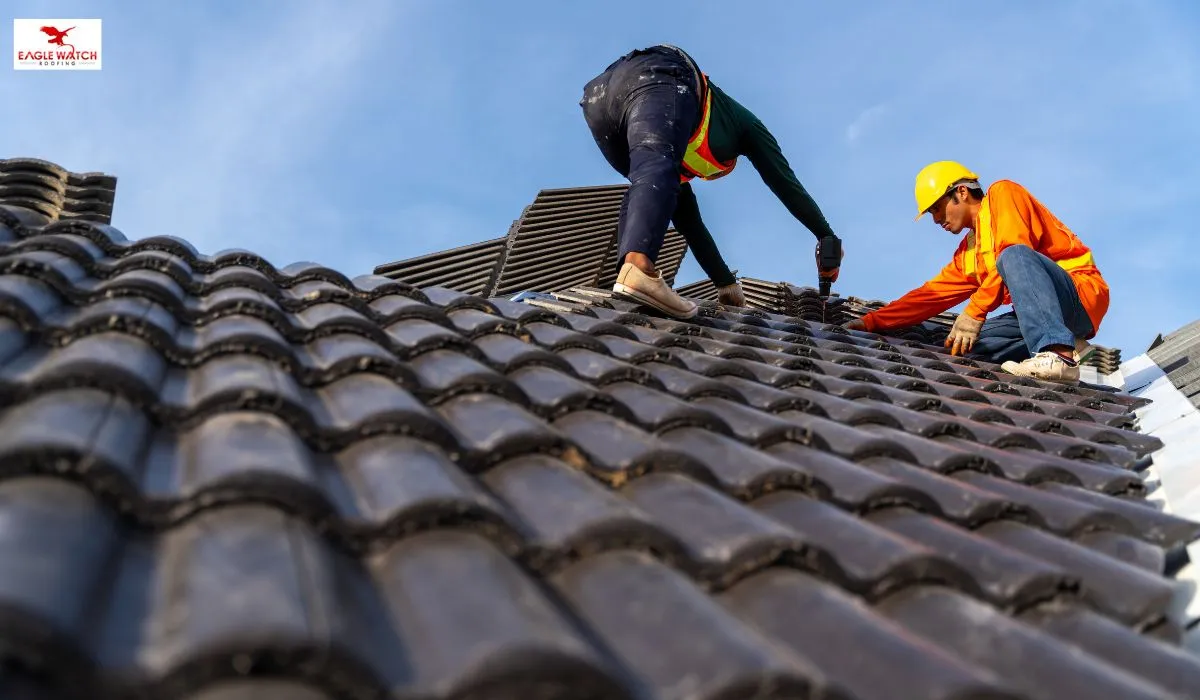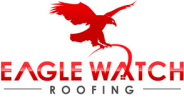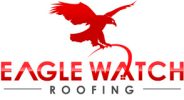What to Expect from a Licensed Roofer During a Roof Inspection
Your roof is the ultimate shield against natural external conditions for your home.
Harsh weather will always take its toll if exposed to it constantly.
Regular checks can prove vital when protecting your roof investment.
One would be dazed at what a roof inspection process is and why one needs professional roofers to handle it.
That’s where licensed roofers help save household money with their skill in catching a problem before it escalates.
In this guide, we will understand what you can expect of these qualified professionals when they inspect, helping you make the right decisions about keeping your roof in proper working condition.
Whether you happen to be experiencing leaks or just coming up due for a checkup, knowing the process empowers a homeowner.
Let’s get started on this critical topic together!
What is a Roof Inspection?
A roof inspection is a detailed review of the condition of your roof, and it usually focuses on structural integrity and materials.
The process can help identify problems before they become costly in the long run.
Generally, a licensed roofer conducts these inspections to ensure they are adequately equipped with experience to handle such an important job.
This inspection includes signs of shingles, flashing, gutters, and vents.
The roofer searches for signs that the roof is aging, decaying, or being destroyed by heavy snowfall or a massive storm.
Early detection can spare homeowners a lot of headaches in the future.
Roof inspectors also check and assess installed insulation and ventilation systems.
Proper airflow is necessary to ensure energy efficiency in your home.
If these systems are not functioning correctly, it may cause heat buildup or moisture retention.
Besides that, many inspect not only visible parts but also places that are not so visible, such as areas under eaves and attics where leaks might go unnoticed.
This way, no stone is left unturned upon evaluation.
Once this process is done, a detailed report summarizing the findings and recommendations for any necessary repairs or maintenance actions required to prolong the life of your roof will be provided.
The Importance of Choosing a Licensed Roofer

There are many reasons to hire a licensed roofer, the key reasons being that licensure ensures that the roofers have undergone training programs, giving them in-depth knowledge of roofing systems.
Hence, they can perceive problems that a layperson would not see.
A professional roofer follows local building codes and regulations.
This not only assures safety but also protects your future, so you won’t be bothered by legal complications.
Your roof must comply with all authority standards, which could be very complex without a professional.
Another vital factor is insurance coverage.
Licensed roofers usually require liability insurance and workers’ compensation, which protects you and your crew if someone gets injured or property is damaged while they work on your roof.
Homeowners can face high costs when things go wrong if they do not have such protection.
In addition, an experienced licensed roofer will likely provide warranties on materials and craftsmanship.
This warranty ensures that if anything goes wrong after installation or repair, you are covered with follow-up work as necessary.
Working with a reputable licensed contractor can earn trust in your community.
Reputable professionals rely heavily on word of mouth and positive reviews; thus, their commitment to quality service is paramount for maintaining their good standing among clients.
What to Look for in a Licensed Roofer
Start searching for a licensed roofer by checking their credentials.
A good professional should possess licenses specific to the location, informing them of regulations and showing a commitment to quality work.
Roofing is always associated with experience.
Consider contractors with a few years of experience and previous projects similar to yours.
Their expertise enables them to identify problems quickly and develop effective solutions.
Reviews and testimonials are valuable for evaluating service quality.
Check platforms like Google, Yelp, or Angie’s List for reviews from past customers.
Positive reviews indicate reliability, while negative reviews signal potential issues with service quality.
Finally, verify insurance coverage.
Ensure your roofing contractor has liability and workers’ compensation insurance to protect you if accidents happen at the site.
This safeguard can save you money if an accident occurs during inspection or repair.
Communication is also essential.
A good licensed roofer will take time to explain their findings and address any concerns you may have during the roof inspection process.
What to Expect When a Licensed Roofer Inspects Your Roof
When a licensed roofer inspects your roof, professionalism is evident from the start.
A brief introduction and explanation of the inspection process typically precede the work, setting a professional tone and establishing trust.
The inspection often begins with a visual examination of the roof’s exterior.
During this step, the roofer checks for visible damage, such as missing shingles, rusted flashing, or other signs of wear.
They also inspect gutters and downspouts to ensure proper functionality.
Next, they move into your attic or interior spaces to check for water damage or ventilation issues.
Hidden areas are thoroughly examined for leaks and insulation performance.
Clear communication is key during the inspection process.
A licensed roofer will explain their findings in detail, discussing potential issues and providing solutions, including cost estimates for repairs.
After the inspection, you receive a detailed report that includes pictures and notes on any defects observed.
This report is valuable for planning future repairs or monitoring maintenance needs.
Licensing, Bonding, and Insurance in Roofing
When choosing licensed roofers, it’s essential to understand licensing, bonding, and insurance.
Each represents a significant factor for both quality assurance and investment protection.
Licensing means the roofer has met the standards set by the state, which often involves passing exams or demonstrating knowledge of roofing codes and regulations.
A licensed roofer is generally more reliable, as they are held accountable for their work.
Bonding offers protection against financial failure.
If a contractor fails to complete the job or fulfill their obligations, bonding provides compensation to the property owner, ensuring project security.
Insurance is also crucial when selecting a roofer.
The roofing company should have liability insurance and workers’ compensation coverage.
Liability insurance covers damages that may occur during the project, while workers’ compensation covers injuries sustained by workers on your property.
Understanding these terms empowers homeowners to make informed decisions when hiring a roofing professional, providing peace of mind throughout the process.
Conclusion
Hiring licensed roofers is a decision that can benefit your home greatly.
Licensed professionals possess the knowledge and experience needed to prevent future issues.
Regular roof inspections can identify potential problems early, enabling timely repairs.
With a qualified professional’s inspection, you gain insight into the condition of your roofing system, making it easier to plan for necessary maintenance.
This proactive approach safeguards your investment and enhances home safety.
Working with a licensed roofer also means adhering to local building codes and following best practices in roofing standards, reducing the risk of faulty installations or repairs.
Licensing, bonding, and insurance further protect your property, providing security for both you and the contractor.
Investing time in selecting a skilled roofer yields long-term benefits, ensuring quality workmanship and dependable service for your home’s primary defense—the roof above your head.
FAQs
What to expect from a licensed roofer while conducting a roof inspection?
Roofers will inspect the integrity of a roof, search for worn-out surface materials, observe signs of moisture or leakage, and the flashing, gutters, downspouts, vents, and any seals. You should expect a licensed roofer to give you a detailed evaluation of visible and hidden issues. Some may include photos or a detailed report summarizing the findings and recommended next steps for repair or maintenance.
Why would you like me to have my roof inspected by a licensed roofer?
A licensed roofer has experienced formalized training, adheres to state and locality standards, and is typically insured, meaning that his work will meet the quality levels and standards. He can spot and diagnose problems that an unlicensed person would have easily missed, thus saving you from costly repairs in the future. Their expertise will make it possible to catch minor causes that, if not addressed in time, can develop into full-blown disasters, protecting the integrity of your home’s structure.
How frequently should I call a licensed roofer to check my roof?
Ideally, schedule the roof inspection at least once a year when extreme weather conditions prevail. Extra inspections after extreme weather are indicated in case of storms, hail, or strong winds to check for any damage that may have been incurred. Regular inspections, especially by professionals, will be able to allow you to address minor wear and tear even before they become serious problems. A wise investment in a new home purchase is to include an inspection as part of the process about the roof’s current condition and life expectancy.
What Specific Areas of My Roof Will a Licensed Roofer Inspect?
A licensed roofer will inspect several critical areas of your roof, including:
Surface Materials: They will check for cracks, blistering, and shingles or tiles that are missing or damaged.
Structural Integrity: Inspect the roof support system that encompasses the underlayment and decking and check for sagging or instability.
Flashing and Seals: Checks around chimneys, vents, skylights, and edges for flashing to ensure that there are no weaknesses in these areas which may allow water entry.
Moisture or Leak Detection: Visual inspection or a moisture meter to help identify areas where leaks or microbial growth may occur.
Gutters and Downspouts: Inspection of the drainage system to ensure water can freely drain away from the roof. All these aspects are crucial for your overall roof health and lifespan, so a licensed roofer will inform you of what immediately needs attention and what preventive maintenance to carry out.
How long does a standard roof inspection by a licensed roofer take?
It is usually between 45 minutes to 2 hours, depending on the size and complexity of the roof as well as the scope and depth of issues that may be found on it. For instance, if its design is more straightforward, with fewer features like skylights, an old, one-story house would take much less time, while more extensive or older roofs with more features like skylights and shoulders will take more time. After an actual physical inspection, the roofer may take more time to compile the findings and recommendations in detail, which may increase the overall time frame
Will a licensed roofer provide an estimate for repairs during the inspection?
Yes, a licensed roofer can generally deliver a repair estimate based on what they find during the inspection. They will discuss the possibility of doing any repairs or maintenance and give you an idea of what it will cost after examining the roof and any other problems. Some roofers include the estimate in your inspection report. The forecast gives you information about what must be done and how much money you must set aside for any work.
What if the licensed roofer finds some problems during their inspection?
Any issues arising during an inspection should be taken care of immediately, especially those that leak or are structurally-related. A licensed roofer often presents you with a report filled with issues sorted according to urgency so that you can keep track of what has to be done right away and what can wait. Discuss further actions with your roofer, like when to allocate time for fixings or arrange an inspection check. Acting on the recommendations they give you in time can prevent further damage and more expensive repairs that would come later on, helping you keep your roof safe and operational.


